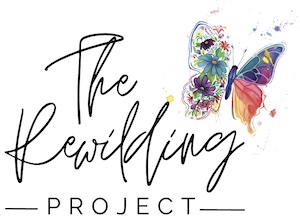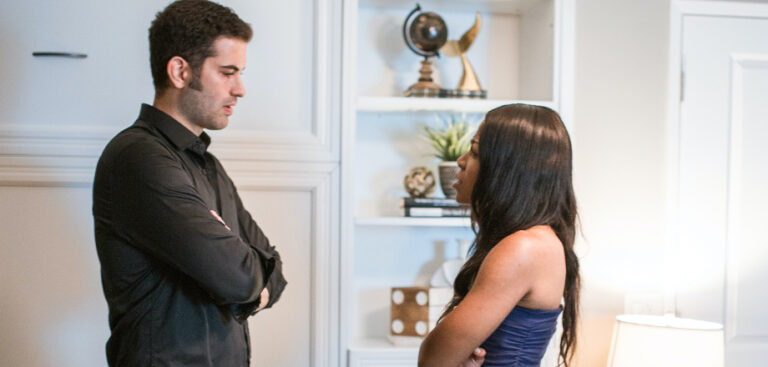Three basics for better communication.
Think about the last time someone said to you: “We need to talk”.
How did you instantly feel?
- Anxious?
- Panicky?
- Defensive?
- Angry?
- Immediately questioning what you did wrong, how are you going to explain it, and make things better?
What about when you have to talk your partner about something that could lead to conflict? How do you feel then? The same?
That’s usually what happens for most of us.
Given that how you start a conversation basically determines how it will end, knowing how to raise a topic or concern with your partner is a key part of better communication.
Up until now, you may have approached this sort of thing by saying something like:
- “We need to talk.” OR
- “When you _____ I feel like _____.” OR
- “I feel like _______ when you _______.”
Super effective phrasing for putting someone on the defence, not great for creating open dialogue. No matter what tone of voice you use, starting a conversation with those phrases will instantly create tension.
The trouble is, most of us don’t have a better framework to use for starting these types of conversations. So what are you left to do?
One of 2 options:
- Square yourself for the fight
- Learn a better way…
Smart guidelines for better communication.
Before we get to that, allow me to let you in on a secret: no one likes to have conversations that result in conflict.
Some people may jump in and get it over with, but that doesn’t mean they like them. We’re built for connection and having conflict feels like the opposite of that, so of course we wouldn’t like it.
(I will acknowledge there are people who seem to like conflict. In my experience that’s because they don’t have a better way of feeling connected to another person, but that’s a whole other topic.)
Conflict is uncomfortable. It increases your heart rate, makes your body tense up, and is generally stressful.
The thing is, in any long-term healthy relationship, conflict is unavoidable, so let’s talk about how to do it better.
Knowing that the way a conversation starts is the way it will end 94% of the time, learning how to start smoothly makes a big difference. Here are three places to think about before you launch into any conversation, especially one where conflict is a possible outcome.
Three components for better communication:
- What to do before you open your mouth – Before You Say Anything
- What to actually say – How To Start the Conversation
- How to complete the conversation powerfully – End On A High Note
Let me be clear, I’m not suggesting this will make conflict easy. I am saying if you want connection and harmony in your relationship, these three components will make tough conversations easier.
1. Before you say anything.
Once it’s clear you’re faced with a tough conversation, people generally choose one of two approaches:
- Get it over with as quickly as possible – you blurt it out and hope for the best
- Over-think and over-analyze – you script out the conversation in your head
By using either of those approaches you’re making the process more painful than necessary.
What can you do instead? Set your mindset.
That means you spend time before you have the conversation getting clear on:
- How do I want to feel at the end of this?
- How do I want the other person to feel?
- What is most important for me here?
- What do I need to do to have this conversation end in a positive way?
- How do I need to show-up to have this conversation end in a positive way?
Use the answers to those questions to set your mindset for the conversation. For example, if set the mindset of ‘partnership’ or ‘everybody wins’ before you open your mouth, you’ll approach the conversation waaaaay differently than if your focus is to make your partner wrong for something they did.
With the mindset of “everybody wins”. If you show up as angry and critical, it’s certain that everybody will not win. In fact, you’ll end up feeling sh*tty and so will they. On the other hand, if you show up to the conversation feeling calm, open, and collaborative, inevitably you will ask questions and listen differently.
How you show up to the conversation will have a HUGE impact on the outcome.
2. How to start the conversation.
If you’re not going to say: “we need to talk” what do you say instead? Using a gentle approach or soft start-up can significantly change the outcome of a conversation.
Start the conversation gently, complain don’t blame.
- This means you’re non-judgmental and avoid blaming. Instead describe what your needs are.
Talk about yourself instead of them.
- Using “I” statements will keep the focus on how you feel and what your needs are.
Describe the situation and what happened.
- This means you focus on the specifics of what happened, not your opinion about what happened.
Talk about what you need in positive terms.
- Focus on what you wish for or want as an outcome rather than what you don’t want.
Pairing that approach with also telling them why you want to have the conversation, what they mean to you, or what you’re committed as an outcome frees them up to fully listen instead of being defensive. Essentially it puts you both on the same side, looking at the problem together rather than in opposing corners with your dukes up.
Here’s An Example:
“Hey Hon, there’s something on my mind that I want to talk about. There’s nothing wrong per se, I just wanted to talk before this gets any bigger for me. Is now an ok time to talk?”
Can you see how language like that would create a totally different conversation than the “we need to talk” strategy? When you stand in that space you have access to a whole other world of conversation.
Things To Remember:
- Talk about you not them – focus on how you’re feeling vs. what they’re doing or not doing. Try: “I’m feeling frustrated” rather than “I hate it when you…”
- Talk about what’s happening – you can still raise your complaint without accusing or judging your partner. “There was no milk left for coffee this morning” will have a different impact than “you used all the milk again.”
- Be polite and appreciative. Your partner is likely not being a jerk on purpose. Talking to them about things they do right and what you appreciate about them will make a difference here too.
3. End On a High Note.
Something that happens in conversations like this, even when things stay calm, is that they don’t get completed. Often you’ll walk away from the conversation thinking you’re both on the same page, only to find out the next time the problem happens that you obviously weren’t… because it happened again.
It can seem like once you have the tough conversation, all the heavy lifting is done. Unfortunately that is likely not the case.
It’s surprising how often a couple will have 2 completely different perspectives on the outcome of a conversation, I see it in my practice all the time. This is actually a main source of friction in a lot of relationships.
What you can do instead, is clearly restate what came out of the conversation and any new agreements that were created before you walk away. This is a critical part of ensuring things go differently in the future.
Something else to consider regarding ending on a high note is to ensure both you and your partner feel acknowledged and heard. This means checking in before you walk away to make sure everyone is ok, is important. Now is the time to discover if there’s anything left unsaid as it will just fester and haunt you in the future.
Better planning equals better communication.
No matter how you slice it, any conversation where you are putting yourself on the line – risking conflict, rejection, criticism, hurt feelings – is uncomfortable.
We’ve all had the experience of trying to have a difficult conversation with someone and rather than bringing us closer, it only made us feel further a part. No wonder it seems easier to avoid the risk all together!
The good thing is, there is hope. With a little planning ahead of time, getting clear on what you want as an outcome, and re-working your language to focus on how you feel and what you need, uncomfortable conversations aren’t so painful.
Give it a try and let me know how it goes!
If you’d like some other ideas about what you can do to increase the connection and intimacy in your relationship, I’ve put together 3 of my favourite techniques for couples to try. I’ve simplified each exercise and provided clear instructions to set you up for success. I hope you find it useful.







